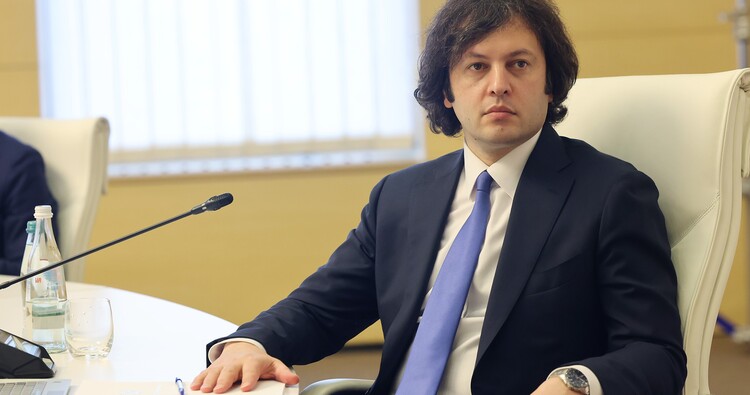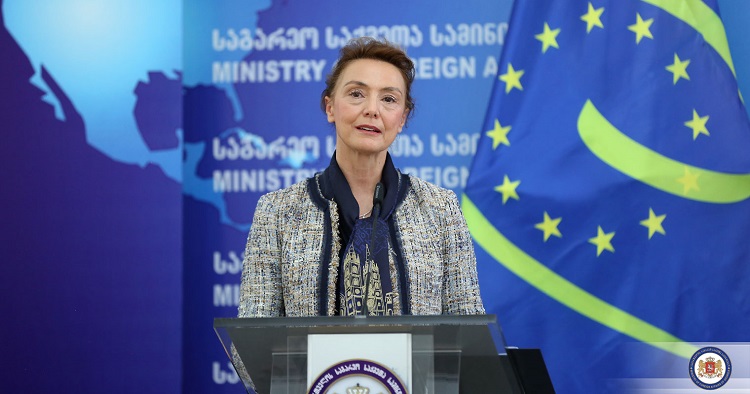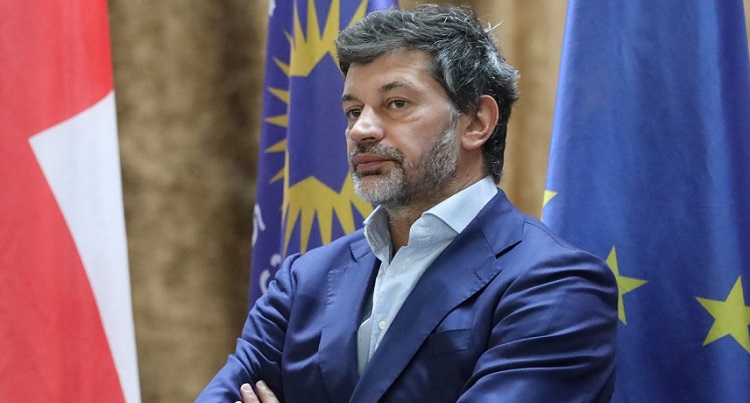PM says “any attempt to blackmail” Georgian people, Gov’t is “not serious”

He also noted there were “a lot of false” statements regarding the law and expressed hope that “in the end” everyone would recognise the “positive goals” of the legislative piece, while once again offering everyone, including foreign partners, a public discussion on the law. Photo via Government Administration
Georgian Prime Minister Irakli Kobakhidze on Tuesday said “any attempt to blackmail” the Georgian people and the Government elected by the country’s citizens with “sanctions or any other similar measures” was “not serious”.
Kobakhidze commented on the recent statement of the United States Secretary of State Antony Blinken made last week regarding a new visa restriction policy for “those responsible for undermining democracy” in Georgia, including in connection with the law on transparency of foreign influence, adopted by the ruling Georgian Dream party, as well as a comprehensive review of the cooperation between the two countries.
The PM emphasised the adoption of “such type of measures” would be “counterproductive”, adding “no one can punish the Georgian people and its Government”.
We have a firm stance on everything, we serve the interests of this society, this country, therefore, for us, any talk about sanctions is frivolous. [...] I once again call for everyone to be pragmatic. Pragmatism and justice are the most correct ways to ensure the realisation of our common interests", he added.
The Head of the Government also denounced “some ambassadors”, who had “avoided” public discussions over the transparency law and still the representatives of their countries “continued to participate in Georgia's internal political debates”.
If they [ambassadors] wanted to continue participating in discussions [over the law], they would be welcomed to sit with me and participate in a public discussion before the Georgian society, which the diplomatic representatives of the respective countries avoided, [...] because they had no arguments against the law”, Kobakhidze stressed.
In his comments over the opinion of the Venice Commission of the Council of Europe, Kobakhidze said the conclusion did not present “a single argument against transparency” and called the opinion “disturbing”.
By this text [of the opinion], the Venice Commission [...] renounced its professional dignity. In the end, they could not write any critical remarks and they wrote that the transparency of NGOs is not good. If the Venice Commission writes such a thing, it is unnecessary to talk about professional dignity there”, the PM emphasised.
He also noted there were “a lot of false” statements regarding the law and expressed hope that “in the end” everyone would recognise the “positive goals” of the legislative piece, while once again offering everyone, including foreign partners, a public discussion on the law.
The Georgian Parliament on Tuesday overrode a veto placed by the country’s President Salome Zourabichvili on the controversial law on transparency of foreign influence with 84 votes against four, on the backdrop of ongoing public protests.
The legislative body adopted the original version of the law, which calls for the registration of non-commercial legal entities and media outlets in the country as “pursuing the interests of a foreign power” if they derive more than 20 percent of their funding from abroad.
 Tweet
Tweet  Share
Share



